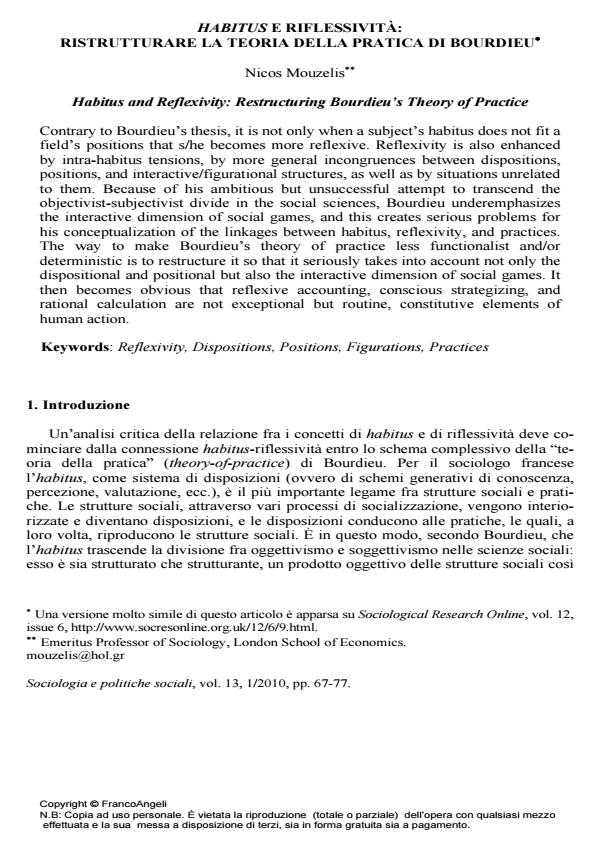Habitus and Reflexivity: Restructuring Bourdieu's Theory of Practice
Journal title SOCIOLOGIA E POLITICHE SOCIALI
Author/s Nico Mouzelis
Publishing Year 2010 Issue 2010/1
Language Italian Pages 11 P. 67-77 File size 395 KB
DOI 10.3280/SP2010-001004
DOI is like a bar code for intellectual property: to have more infomation
click here
Below, you can see the article first page
If you want to buy this article in PDF format, you can do it, following the instructions to buy download credits

FrancoAngeli is member of Publishers International Linking Association, Inc (PILA), a not-for-profit association which run the CrossRef service enabling links to and from online scholarly content.
Habitus and Reflexivity: Restructuring Bourdieu’s Theory of Practice - Contrary to Bourdieu’s thesis, it is not only when a subject’s habitus does not fit a field’s positions that s/he becomes more reflexive. Reflexivity is also enhanced by intra-habitus tensions, by more general incongruences between dispositions, positions, and interactive/figurational structures, as well as by situations unrelated to them. Because of his ambitious but unsuccessful attempt to transcend the objectivist-subjectivist divide in the social sciences, Bourdieu underemphasizes the interactive dimension of social games, and this creates serious problems for his conceptualization of the linkages between habitus, reflexivity, and practices. The way to make Bourdieu’s theory of practice less functionalist and/or deterministic is to restructure it so that it seriously takes into account not only the dispositional and positional but also the interactive dimension of social games. It then becomes obvious that reflexive accounting, conscious strategizing, and rational calculation are not exceptional but routine, constitutive elements of human action.
Keywords: Reflexivity, Dispositions, Positions, Figurations, Practices
Nico Mouzelis, Habitus e riflessività. Ristrutturare la teoria della pratica di Bourdieu in "SOCIOLOGIA E POLITICHE SOCIALI" 1/2010, pp 67-77, DOI: 10.3280/SP2010-001004